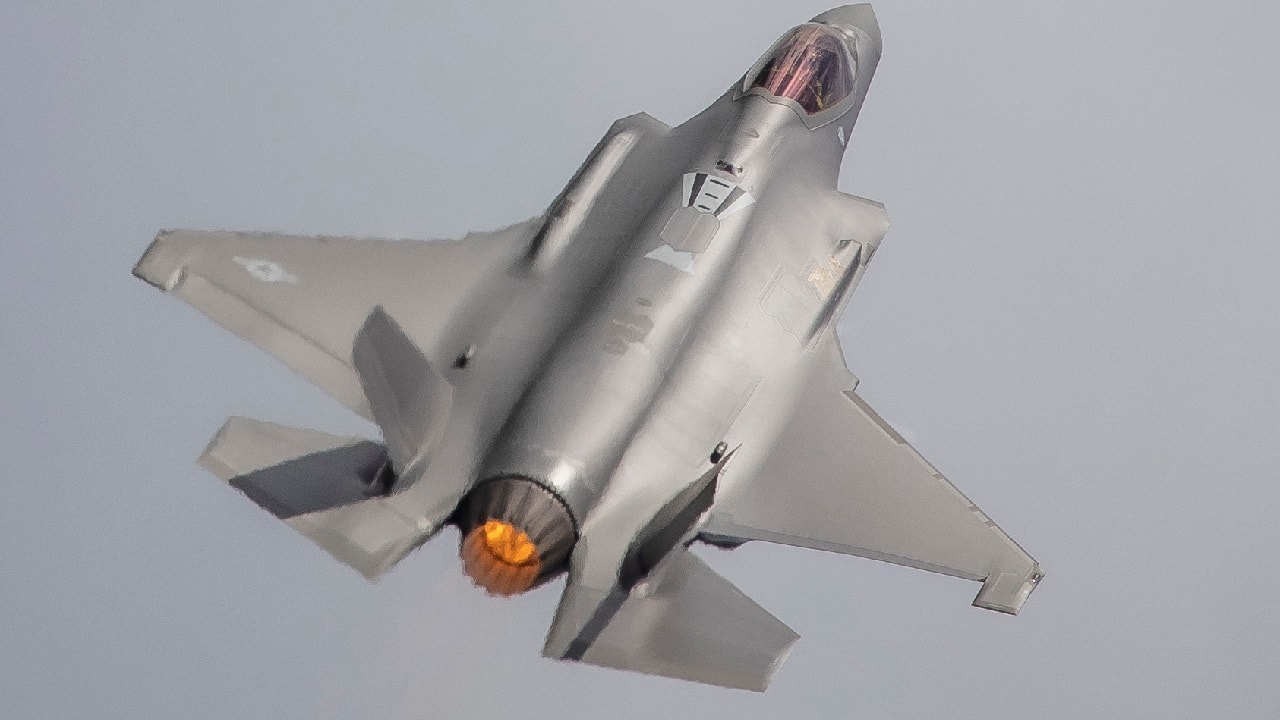More F-35 JSF for Putin to Worry About: NATO ally Romania announced on Tuesday that it will acquire the Lockheed Martin F-35 Lightning II for its air force.
(Subscribe to 19FortyFive‘s New YouTube Channel here.)
It was just over a year ago, after Russia launched its unprovoked invasion of Ukraine, that the United States Air Force deployed a pair of F-35s to the region.
Romania had already been considering the fifth-generation stealth fighter for its military, but that deployment likely highlighted its capabilities.
“Having robust, credible, interoperable, flexible and efficient air defense operational capabilities … as part of our commitments as a NATO and EU state is key to Romania meeting its defense policy objectives,” the Romanian supreme defense council told the media via a statement. “The air force’s modernization process will continue through the acquisition of next generation F-35 jets.”
Bucharest has not confirmed the number of F-35 aircraft that it will acquire.
The announcement follows news from last month that the Romanian military would acquire a number of U.S.-made M1 Abrams tanks, while in December, the Romanian defense ministry signed a deal to acquire seven Watchkeeper X unmanned aircraft systems (UAS) from Israel in a deal reported to be worth 1.89 billion lei ($418.02 million).
The F-35 Lightning II is operated by, or in the coming years will be operated by, a number of NATO members including the UK, Canada, Denmark, Italy, Belgium, Norway, the Netherlands, Czech Republic, Finland, and Poland; as well as neutral partner Switzerland.
Romanian Defense Posture and F-35
The Eastern European country, which was a member of the Warsaw Pact during the Cold War, joined NATO in late March 2004 after being the first country to enroll in the alliance’s Partnership for Peace program. Romania is also a member of the Organization for Security and Cooperation in Europe (OSCE) and the North Atlantic Cooperation Council (NACC).
The country shares a 650 km (400 mile) border with Ukraine. Military analysts also consider the Focșani Gate – located near the border with Moldova and Ukraine – to be a militarily and strategically vulnerable area in Romania and NATO, as its control would allow entry into vast tracts of Romanian territory and several other regions of Europe.
Bucharest has steadily increased its annual defense spending since 2004 when it joined NATO, and last year announced it would increase its budget to 2.5 percent of its gross domestic product (GDP) – above the 2 percent-of-GDP statutory level for NATO members.
“Next year we will take another step forward by increasing the defence budget to 2.5% of GDP, in order to increase the army’s ability to fulfill its entrusted missions and thus give Romania even more credibility in exercising the role of a regional security pillar,” Romanian President Klaus Iohannis told reporters on October 25, 2022, the Day of the National Army.
Across the European Union and NATO, several nations have raised defense spending to 2.5 percent of the GDP in response to Russia’s invasion of Ukraine.
MORE: Video – Ukraine Has Massive New NATO ‘Cannon’ Ready To Fight Russia
MORE: ‘Americans Will Pay The Price’: One Democrat Is Angry At Joe Biden
MORE: Could Joe Biden Get Impeached?
Author Experience and Expertise
A Senior Editor for 19FortyFive, Peter Suciu is a Michigan-based writer. He has contributed to more than four dozen magazines, newspapers, and websites with over 3,200 published pieces over a twenty-year career in journalism. He regularly writes about military hardware, firearms history, cybersecurity, politics, and international affairs. Peter is also a Contributing Writer for Forbes and Clearance Jobs. You can follow him on Twitter: @PeterSuciu.

